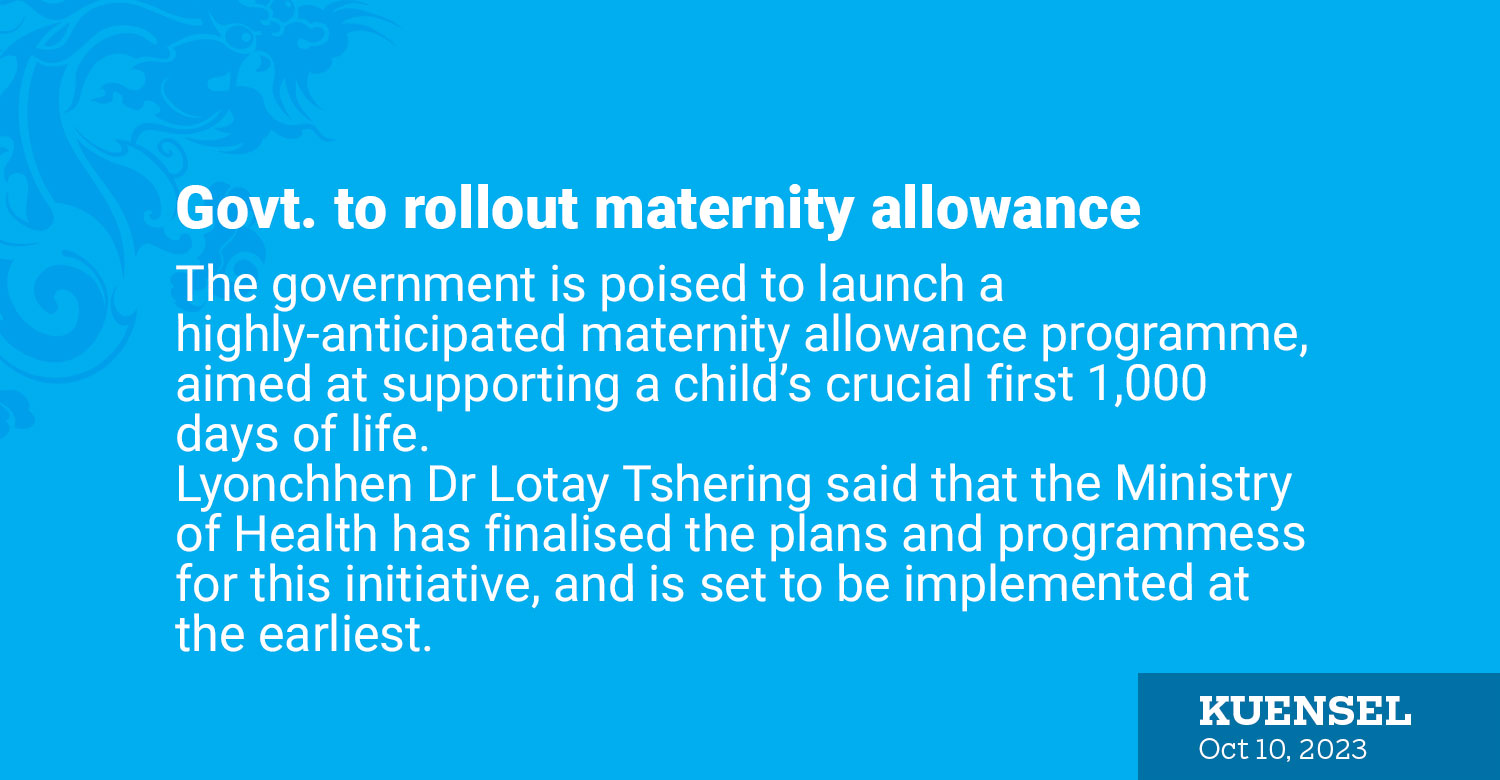Lhakpa Quendren
The government is poised to launch a highly-anticipated maternity allowance programme, aimed at supporting a child’s crucial first 1,000 days of life.
Lyonchhen Dr Lotay Tshering said that the Ministry of Health has finalised the plans and programmess for this initiative, and is set to be implemented at the earliest.
The details of the plan will be officially announced by the health ministry in due course.
Lyonchhen acknowledged that the Covid-19 pandemic caused delays in the programmes’ implementation, necessitating the redirection and reprioritisation of the budget towards urgent initiatives.
However, he assured that work on the programme resumed after the pandemic and is now prepared for implementation.
The announcement came in response to a query from member of parliament Jurmi Wangchuk of Drujeygang-Tseza, who expressed constituents’ concerns about the status of the maternity allowance programmes, given the approaching end of the government’s tenure.
Lyonchhen emphasised the importance of investing in human capital, starting from conception.
“If women can attend all eight antenatal checkups, deliver their children in hospitals, and receive government support during the initial three years, we can nurture productive citizens for our country,” Lyonchhen said.
However, Lyonchhen noted that many women struggle to attend antenatal checkups due to domestic workload. “Despite the requirement to deliver the children in the hospital, many women are still unable to do so.”
He also highlighted the importance of these checkups in preventing the risk of potential diseases later in life. “To reduce the risk of diabetes, hypertension, and cancers in the later years, it is important to provide quality care during the initial three years of pregnancy, delivery, and post-delivery.”
The Cabinet approved the Accelerating the Mother and Child Health Programme (AMCHP) in 2019.
This programme aims to provide eligible mothers with Nu 39,000 each, starting from the day of conception until the child reaches two years of age.
A comprehensive communication strategy has been established to inform the public about the AMCHP programme, with the goal of improving health-seeking behavior, knowledge, and practices related to Mother and Child Health (MCH) services.
The policy seeks to empower women financially, encouraging them to open savings accounts and promoting shared responsibility for pregnancy and child-rearing within families and communities.
The health ministry has developed operational guidelines outlining the delivery platform, key target beneficiary population, disbursement methods, and eligibility criteria to achieve the policy’s objectives.
Additionally, several initiatives, such as iCTG, have been implemented to enhance the quality of pre- and postnatal care for both mothers and their children.
The introduction of the maternity allowance is expected to encourage population growth in light of the country’s low growth rate, an issue previously highlighted by Health Minister Dechen Wangmo, who emphasised the need for monetary incentives to encourage mothers to have two to three children to mitigate potential negative economic impacts.


